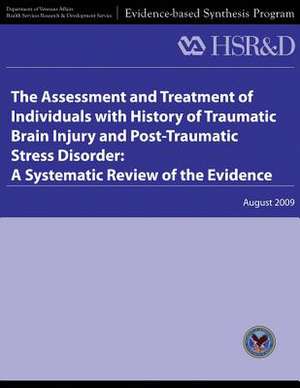The Assessment and Treatment of Individuals with History of Traumatic Brain Injury and Post-Traumatic Stress Disorder
Autor U. S. Department of Veterans Affairs, Health Services Research &. Deve Serviceen Limba Engleză Paperback
Preț: 110.36 lei
Preț vechi: 116.16 lei
-5% Nou
Puncte Express: 166
Preț estimativ în valută:
21.12€ • 22.93$ • 17.74£
21.12€ • 22.93$ • 17.74£
Carte disponibilă
Livrare economică 01-15 aprilie
Preluare comenzi: 021 569.72.76
Specificații
ISBN-13: 9781489539977
ISBN-10: 1489539972
Pagini: 80
Dimensiuni: 216 x 280 x 4 mm
Greutate: 0.21 kg
Editura: CREATESPACE
ISBN-10: 1489539972
Pagini: 80
Dimensiuni: 216 x 280 x 4 mm
Greutate: 0.21 kg
Editura: CREATESPACE
